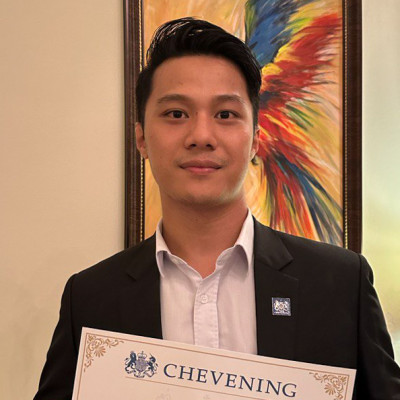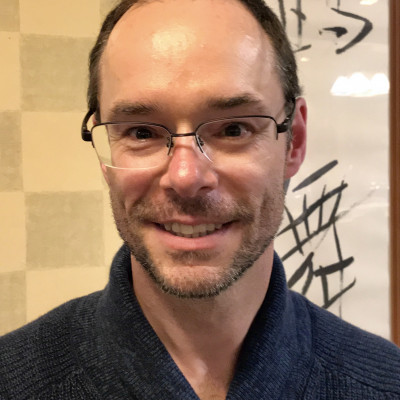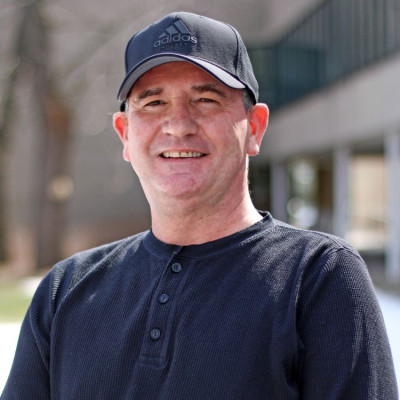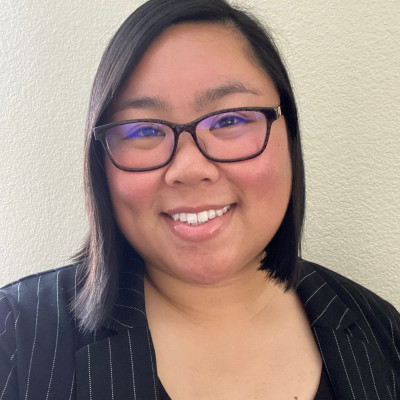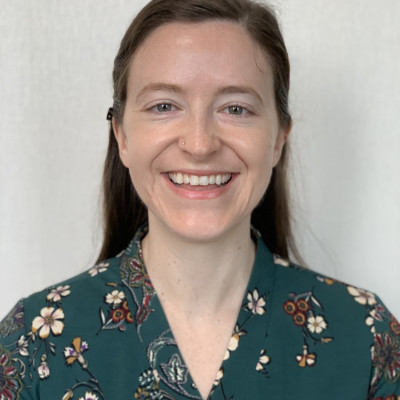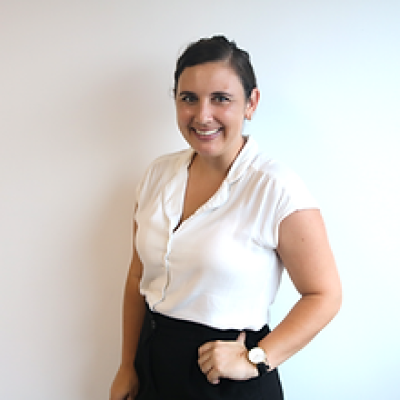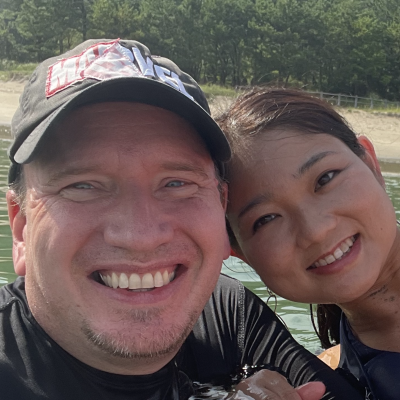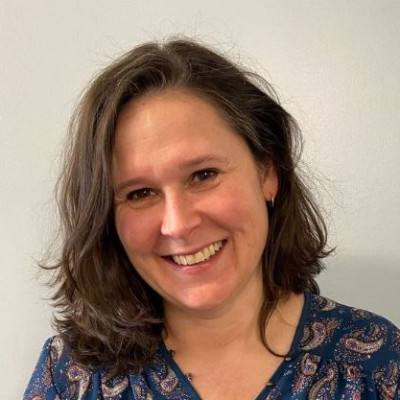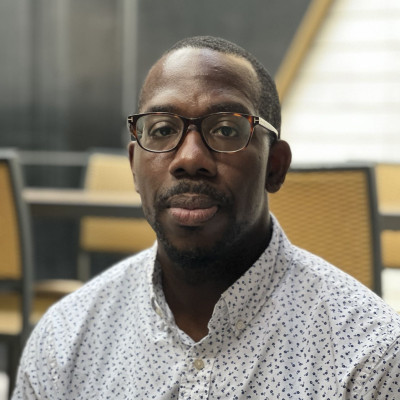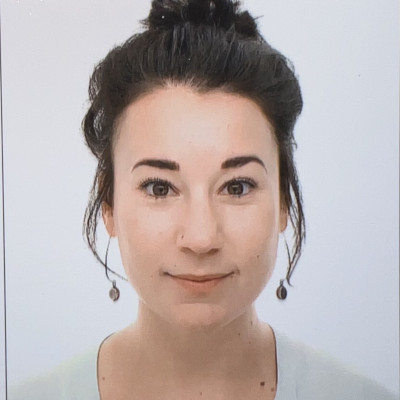Sessions / Workshop (50 mins Onsite)
Cross-Cultural Awareness at Home: Activities for the Language Classroom #3571
The ability to interact across cultures is valued by modern education systems and employers. Intercultural competence necessitates acquiring knowledge about both unfamiliar cultures and values, and one’s own. It implies an attitude of openness to difference, and the ability to recognize stereotypes.
As language is inseparable from culture, teachers have both a responsibility and an opportunity to train students’ intercultural competence. However, COVID-19 and its aftershocks continue to disrupt our ability to travel and experience genuine interaction across cultures. Further, many argue that the representation of culture in ELT textbooks and classrooms is inadequate.
This workshop will introduce frameworks and activities that teachers can use to sensitize students to cultural difference, help students to understand their own values, and connect those values to cultural behavior. It will also suggest ways in which online tools can be used to encourage collaboration beyond the classroom.
Developing Teacher-Student Collaboration across subjects in English in the classroom #3639
Many students are not motivated to learn English because they do not see its value nor relevance to their lives or future endeavors. Although they have strong grammar or vocabulary competence, they barely practice their English. In Asia, the challenge is building a teacher-student relationship so that students can relate to other subjects they have learnt and apply it to communicate with people from around the world in English. How can educators develop a conducive environment to help students socialize in English outside the classroom? In this interactive workshop, the participants explore practical lesson ideas that can stimulate self-reflection on teaching practices through creative and critical thinking.
Advancing Tech Access: Demystifying Technology Jargon Through Explicit, Interactive Activities #3581
Propelled by the COVID-19 pandemic, learning technologies have played a central role in facilitating educational experiences for students of all ages. Effective use of technology, however, requires functional understanding of the entailed lexicon, posing significant challenges to multilingual learners, especially to students studying abroad in higher education settings. Because technology vocabulary varies internationally and locally with university-specific technology jargon, terms can be easily conflated and confused. While the importance of academic vocabulary development in English for academic purposes (EAP) settings is widely established in the literature (e.g., University Word List, Xue & Nation, 1984; New Academic Word List, Coxhead, 2000), the explicit teaching of vocabulary associated with technology to support multilingual students’ academic success has been overlooked. This interactive workshop presents creative ways English instructors can identify, teach, and reinforce technology vocabulary to ensure equitable access and student success appropriate for their teaching context.
Using Google Classroom to tackle students’ problems with writing skills in EFL classroom #3604
Partner Session (CamTESOL)
Teaching writing has been an issue in EFL classroom as teachers need to spend time providing feedback on students’ work. Also, it lacks interaction between students and students. The advancement of technology, nonetheless, has brought about new approaches in teaching writing. It particularly makes learning outside the classroom not just achievable, but also interactive and fun. This study explores how Google Classroom can be used as an online learning platform to tackle students’ problems with writing skills. There are three significant stages in this study including the first observing stage which students are encouraged to participate in online discussions without worrying of writing and grammatical errors. Stage two, feedback stage, involves the teacher providing feedback and correction on the work that the students produce in stage one. In the last stage, the students practice their writing through using the target language points learnt inside the class to communicate and discuss with their peers. The last part of the presentation will discuss practical tips and activities in Google Classroom which teachers can implement in their own class to boost students’ writing.
BrainPOP Jr. 101: Aiding Students with Collaboration and Digital Literacy #3643
English education in EFL has always straddled the line between competitive core curriculum and edutainment. The pandemic came to spotlight an inevitable shift regarding the necessary collaboration between shared technology in the classroom and at home. ELL instructors have had to remain one step ahead of the digital curve to ensure that classroom and parent expectations are met. Instructors are left with the dubious task of fostering engagement with their students, in and often outside the classroom, but where to start? This workshop reviews in-class research and instructors will be presented with a specific forum that provides media and modules to construct lessons and curriculums that help students from all levels better understand core concepts in language arts. Participants will discuss and formulate engaging ways to foster the usage of keywords and incidental language through channels of humor, review, and gamification, which supports collaboration and engagement with all students.
Using Google Docs For Collaboration In Schools On Material Preparation #3665
Partner Session (JALT)
Many teachers working in private language schools or in the public and private elementary, middle and high schools have limited time for material preparation. Some have access to shared resources that individuals have made and posted on various websites, which may or may not be behind paywalls. But even these resources never seem to match ones own particular teaching situation, or the materials may actually be quite flawed. A solution to this problem would be to collaborate with colleagues in your own school or with others in a similar teaching environment using Google Docs. This workshop will show a real case study of a collaborative effort of three teachers to make materials at a private children's English language school in Japan that enhanced our classrooms and matched perfectly with the vocabulary and targets in our textbooks. Finally, the participants will be able to try their hand at collaborating on a small project.
Operationalizing Reflective Practice for Language Teachers #3741
Update: This session has been moved to room 201.
We must enter, not evade, the tangles of teaching so we can understand them better and negotiate them with more grace, not only to guard our own spirits but also to serve our students well. This workshop invites participants on a reflective journey through the lens of the Reflective Practice Framework, which includes exploring a language teacher’s philosophy, principles, theory, practice, and critically reflecting beyond practice.
Flipping for the Future: Revamping the Post-Pandemic Classroom with Flipped Learning #3551
Transforming the teacher’s role from “sage on the stage” to “guide on the side” (King, 1993), a flipped curriculum is not merely an online course, self-paced assignments, or collection of self-study materials, but rather a carefully crafted curriculum that shifts the bulk of content and assignments on the lower levels of Bloom’s Taxonomy outside of the classroom, and focuses in-class time on reaching higher levels of thinking with the guidance and support of the teacher. Compared with traditional classrooms, a flipped approach creates more opportunities for student engagement, increases student autonomy and motivation (Campillo-Ferrer & Miralles-Martínez, 2021), and allows for further student collaboration. In this workshop, participants will be guided through flipping using three easy-to-remember principals. Participants are encouraged to bring their own lesson plans to personalize their workshop experience, and will leave prepared to further enhance students’ learning experiences and help maximize classroom time.
Conversation Based Learning: Use Partners, not Grammar #3470
Stop the insanity. Grammar-based English is failing another generation of students. With videos and ten years of data, this presentation details Conversation-Based Learning from first-day placement test to last-day improvement data. The method is Writing for Speaking. Writing before speaking improves accuracy, speaking to many partners improves fluency. Students sit in pairs and have speed dating conversations. They get a new topic every week and a new partner every seven minutes. Everybody speaks half the time, and half the time their partner is a better speaker. The self-transcribed conversation test completes the system. Students get extensive personal feedback, and teachers get accurate grading and improvement data. In short: students write what they say, talk about what they wrote, transcribe what they said, and correct their own mistakes. Students do all the work. Good. An education is preparation for life and life is not a grammar test.
ADOQ: A Practical Formulaic Sequencing Strategy for Improving Oral Fluency #3478
Formulaic sequences (Pangket, 2019) are practical word combinations and patterns. These word sequences can be used in diverse ways that encourage natural and extemporaneous speaking. ADOQ is a formulaic sequence (FS) that respectively refers to answer, detail, opinion, and question. This sequence works to facilitate the simultaneous processes of quickly accessing knowledge while logically activating oral production. Therefore, FS encourages longer speaking durations while reducing the length and frequency of pauses and recollection silences (Pangket, 2019). As learners become more proficient with a sequence, the sequence components can then become modular to align with higher complex speaking skills and collaborative tasks. In this immersive 50 minute workshop, the formulaic sequence “ADOQ” will be explicitly modeled with modulated scaffolding for implementation in various speaking contexts. This interactive workshop includes group discussions, practice, and reflection. Audience members can immediately implement ADOQ into their curriculum and course content with minimal prep time thereafter.
Bringing English vowels to life: Vowel instruction for Korean learners of English #3483
Though Korean contains less than half of the vowel sounds in the English language, the lion’s share of pronunciation instruction tends to go to consonants. This is understandable, as consonants often possess more obvious points of contact that are easier for uncertain teachers to surmise and convey to students. With the aim of stripping away this uncertainty that educators often cite as a barrier to teaching pronunciation, in this introductory workshop, we will examine the vowels that frequently pose a problem for our Korean learners of English, the reasons behind those problems, and clear ways of describing proper articulation. We will also gain hands-on experience as we go beyond ‘repeat after me’ and explore practical applications of oral, audio, visual and tactile techniques, activities, and cheats for teaching pronunciation that make learning not only impactful, but also enjoyable for our learners.
Integrating Collaboration into Reflective Teaching Practice #3496
Reflective Teaching Practice is often understood to be an individual endeavor consisting of reflecting on and evaluating teaching moments, questioning personal beliefs about teaching and learning, and using student outcomes to inform professional development. This workshop will demonstrate the usefulness of collaboration between teachers, in the form of dialogic reflection and co-planning and reflection, in the Reflective Practice cycle. Participants will practice dialogic reflection and work through the process of co-planning and reflecting, then reflect on how both can be applied to their teaching practices and contexts. Participants can expect to leave the workshop with an understanding of the importance of collaboration in the reflective process and two straightforward methods of incorporating collaboration into their own Reflective Teaching Practice.
Chat GPT in TESOL: Friend or Foe? #3406
The use of language model technology, such as Chat GPT, in TESOL education has the potential to revolutionize the way we approach language learning and writing instruction. In this presentation, we will explore the various ways in which Chat GPT can be incorporated into TESOL classrooms to enhance student engagement, improve writing skills, and facilitate the exploration of complex texts and ideas.
First, we will discuss the basics of Chat GPT and how it works, including its ability to generate human-like text and converse with users. Next, we will examine the various pedagogical applications of Chat GPT, including its use in writing exercises, text-based discussions, and language learning activities. We will also discuss the potential benefits of using Chat GPT in the TESOL classroom, including its ability to adapt to the needs and abilities of individual learners and its potential to support personalized learning.
Finally, we will share practical tips and strategies for integrating Chat GPT into TESOL lesson plans and activities, as well as suggestions for managing and evaluating its use in the classroom. Through a combination of research, case studies, and hands-on demonstrations, this presentation will provide TESOL educators with a comprehensive overview of the benefits and best practices for using Chat GPT in language learning and writing instruction.
By attending this presentation, TESOL educators will gain a deeper understanding of the role of Chat GPT in language learning and writing instruction, as well as the tools and strategies needed to effectively integrate this technology into their own classrooms.
Training Summarization: Much More Than a Test-Taking Skill #3430
Summarizing is a language device that we all use daily to communicate our experiences and learned knowledge with others. However, it can be a difficult skill to acquire and master for language learners. This workshop will provide hands-on experience in how to prepare materials and train students to improve their summarizing skills for both listening/speaking and reading/writing. Using question-types based on the Pearson Benchmark Test, we will show techniques for improving students’ scores and how these skills apply to a much wider, richer context in real-world language use. Workshop participants will collaborate with presenters to create practice materials and learn about a variety of delivery methods for students to use both in class and at home.
Sharing Your Strengths: Make and Deliver a Conference Presentation #3451
One of the most effective techniques to develop strength and confidence in teaching is produce a conference presentation for a wider audience. It connects the speaker to other professionals, allowing oneself to grow professionally. However, many teachers are intimidated by preparing and delivering a conference proposal. This presentation draws from the presenter’s own extensive experience in different types of conferences over at least a decade. The presentation shows how to write an effective abstract, integrate the intended material for presentation, pace and organize the presentation within the set time, respect the audience’s context, and manage other considerations for a successful conference presentation. Expect to interact with others on these topics and to learn helpful tips and techniques for any presenter. Regardless of your experience as a presenter yourself, you will find this presentation enlightening.
Mental Health and the Intersections of a Korean University EFL Classroom #3461
Mental health may be a neglected piece of the solution for those who want to embrace the vocation of an educator to both see their students succeed in learning English and have full meaningful lives. This workshop will provide a brief overview of the buzzwords "mental health" and lay out some useful definitions for a more helpful discussion of the topic. Then the workshop will engage in conversations to think about how the three spaces of higher education, Korea, and EFL affect mental health. The presentation will conclude by giving some resources which students and educators might find helpful.
Exploring artificial intelligence (GPT-4) in TESOL: How the field should be ready #3375
The emerging artificial intelligence (AI) and its capacity to generate illustrations and texts using the enormous amount of data available on the internet have received researchers’ attention lately. Especially, strong AI systems such as GPT-4 can generate “poetry, dialogue, puns, literary parodies, and storytelling” (Branwen, 2020, Creative fiction section) as well as academic papers with references (Thunström, 2022) by using its “state-of-the-art machine learning algorithm” (Thunström & Steingrimsson, 2022, p. 3). In this three-part workshop, the presenter will first briefly introduce emerging artificial intelligence (AI), specifically focusing on its capability in academic writing (10 minutes). Then the audience will try GPT-based platforms to see how AI can generate texts written in academic or other genre-specific languages (30 minutes). Finally, the audience will together discuss the potentials and risks that such AI can impose in the field of TESOL, and how the field should be ready (10 minutes).
Extra! Extra! Creating an English for Journalism Course Using the 4Cs Framework #3460
Journalism presents an ideal opportunity to engage with the CLIL 4Cs (content, cognition, culture, and communication). During the news writing process, students must think critically to develop story ideas on topics they believe will interest their readers. They then gather information on that topic through online research and one-on-one interviews with people in the community. Finally, they write, edit, and publish their stories following journalistic style. In this workshop, the presenter will briefly outline an English for Journalism course at a private university in Japan and explain how it attempts to incorporate the 4Cs into the class. Using this framework, student feedback on the course, and the presenter’s reflections on teaching the course, attendees will collaborate to create tasks, assignments, and other material that can be used in their own journalism lessons.
A Pronunciation Toolkit for English Instructors #3530
Comprehensible pronunciation is an essential part of our students’ successful communication. However, it can be difficult for teachers to know what to focus on when our learners have so many challenges. As well, integrating clear and helpful instruction, along with opportunities for practice, can be a struggle in an already jam-packed curriculum. In this workshop, participants will explore the core features of pronunciation that have the most significant impact on our students’ intelligibility. The speaker will demonstrate techniques for addressing these elements of speech using everyday items that teachers can carry in their pronunciation “tool kits” to help students master core pronunciation features in a practical, fun way. In addition, the speaker will demonstrate how this practice can be seamlessly incorporated into existing lessons. Session participants will leave with "toolkits" of their own, as well as engaging ideas they can put into practice in their own classrooms immediately.
Speedy Conversations and Extensive Speaking for English Fluency in University EFL #3545
Student collaboration through speedy conversations in conjunction with extensive speaking activities to increase fluency. Previous research has suggested that extensive monologic speaking activities modelled after extensive reading can result in superior performance outcomes in intensive courses (Gu & Reynolds, 2013). The current study integrated speaking instruction with both dialogic and monologic speaking activities within a common extensive EFL situation at a South Korean university. Instruction was given twice weekly during 90-minute classes. Students performed in-class speedy activities based on Maurice’s (1983) 4/3/2 fluency drill, and completed short recordings twice weekly as homework. The research team compared pre- and post-intervention speaking fluency. The findings show that the ‘pedagogical cocktail’ for speaking instruction was statistically significant and that the effect size was substantial. Participants in this talk will learn about our research, have an opportunity to share perspectives on spoken fluency, and gain practical tools for their TESOL classrooms.
Teaching English in the Digital Age 101: Learner-Driven Strategies from IDLE Research #3548
This workshop will engage participants in demonstrating and discussing the pedagogical applications of recent research globally about Informal Digital Learning of English (IDLE). Across the world, multiple recent studies have shown that youth acquire much of their English though social media and digital entertainment, with powerful results: More IDLE > higher tested levels of proficiency. How, then, can teachers take advantage of IDLE as a resource? We will present scenario-based strategies in which teachers discover and adapt their students’ use of IDLE for classroom learning. These strategies are theoretically sound and help to solve three basic challenges of classroom language teaching: finding access to authentic and compelling materials; opportunities for practice with more proficient speakers; and access to content and practice 24/7. To extend the workshop we will create a website and forum for sharing ideas with a community of teachers interested in bringing learner-driven strategies to their classrooms.
Guiding Students to Constructing Better Arguments #3723
Many EFL university students face not only challenges with English academic language but also the expectations of Western academic rhetoric. In this workshop, we'll discuss how to tailor popular argumentation models to student learners and guide them in developing critical arguments. The workshop will focus on example lesson materials and online resources for Aristotelian, Toulmin and Rogerian arguments, with some reference to other popular argumentation options as well. As many at this conference cater to a Korean audience, the presentation will also briefly touch on academic research in differences between Korean and Western rhetorical styles. While this workshop may focus more on written essays, there will be some room for discussion in spoken rhetoric (debates, presentations, etc.) as well.
Fun and Games for Bottom-up Listening #3529
Researchers of second language listening contend that the use of bottom-up strategies benefits both proficient and less-skilled L2 listeners (Field, 2008 and Reed & Jones, 2022). The good news is bottom up processing practice in ESL classes can make a big difference in students’ overall listening comprehension (Siegel & Siegel, 2015). In this workshop, the speaker will demonstrate 10 interactive, engaging activities that teachers can easily incorporate into their classes with existing listening texts at every level. Session attendees will leave with practical ideas they can put into practice on Monday!
Field, J. (2008). Listening in the language classroom. Cambridge University Press. Reed, M. & Jones, T. (2022). Listening in the classroom: Teaching students how to listen. TESOL Press. Siegel, J. & Siegel, A. (2015). Getting to the bottom of L2 listening instruction: Making a case for bottom-up activities. Studies in Second Language Learning and Teaching, 5(4), 637–662.
Exchanging Experiences to Build Understanding: Dialogue Journal Use In Service Learning #3397
Jacoby (1996) defines service learning as “a form of experiential education in which students engage in activities that address human and community needs, together with structured opportunities for reflection designed to achieve desired learning outcomes.” Pedagogically, students’ ability to negotiate their understanding of and relationship with learning outcomes and connected social issues expand as they engage in structured reflective practice. This workshop presents the theoretical background of service learning in the context of language instruction before narrowing the focus to the design and implementation of dialogue journals: shared, student-led logs offering collaborators space to describe, probe, and interrogate their cumulative experiences. Attendees of this workshop will be led in a series of joint tasks analyzing and critiquing the tool, sharing teaching contexts, and exploring ways to incorporate similar frameworks in their classrooms - calling special attention to instructor interaction and customizing feedback.
Using Blended Learning to Create Student-Led Conversation Courses #3518
English learners in L1 environments often lack opportunities to practice their speaking skills, therefore every second in the conversation-based classroom is a precious moment for them. To increase engagement and maximize student speaking time, we have incorporated blended learning into our curriculum to create a student-led classroom. Outside the classroom or on specially designated days, students learn self-study techniques to practice a wide variety of speaking skills such as fluency, intonation or asking follow-up questions. This allows students to spend the majority of their time in class divided into small groups discussing topics ranging from everyday English to controversial current events, with specific topics chosen by students based on their personal interests. This design has led to increased participation as students take charge of their own learning in the classroom, while targeted goal setting and independent skill building activities keep students motivated as the progress from struggling through small talk to being able to confidently and competently discuss controversial issues. In this workshop, we will teach effective strategies and adaptable activities that can give your students more speaking opportunities and increase engagement in the classroom.




